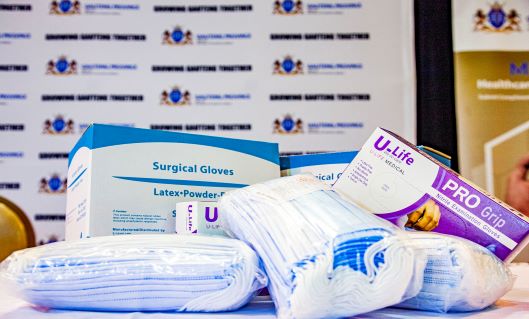Office of the Premier 2022/04/04 - 22:00

Rofhiwa Marubini-Tshitahe
President Cyril Ramaphosa has lifted the National State of Disaster with effect from Tuesday, 5 April 2022.
The State of Disaster, implemented on 15 March 2020, was introduced to deal with the COVID–19 pandemic.
It empowered government to slow down the rate of infection, easing pressure on hospitals, and providing the time to develop the infrastructure, resources and capacity to manage a large number of people who became ill.
"Cabinet has decided to terminate the National State of Disaster with effect from midnight tonight," President Cyril Ramaphosa announced on Monday evening.
In his address, the president said the lifting of the regulations is a significant milestone and a sign of the progress South Africa has made in the fight against COVID-19.
He explained part of the rationale for lifting the regulation was compared to average daily COVID-related deaths over time.
In the fourth wave, in February this year, the highest daily number of COVID-related deaths was 240.
In the past week, this number has dropped to just 12.
This is a similar pattern in the health facilities where of the 108 000 regular beds in the country, only 1 805 are currently occupied by COVID-19 patients.
However, the president stressed that some of the restrictions of the state of disaster will remain for the next 30 days.
People are still required to wear a face mask in an indoor public space to prevent transmission while many people remain unvaccinated.
The existing restrictions on gatherings will continue as a transitional measure.
This means that both indoor and outdoor venues can take up to 50 percent of their capacity without any maximum limit, provided that proof of vaccination or a COVID test not older than 72 hours is required for entrance to the venue.
Where there is no provision for proof of vaccination or a COVID test, then the current upper limit of 1 000 people indoors and 2 000 people outdoors will remain.
With regards to international travel, Ramaphosa said those entering South Africa will need to show proof of vaccination or a negative PCR test not older than 72 hours.
The directions that provide for the payment of the special R350 Social Relief of Distress Grant will remain in place until March 2023.
The directions extending the grace period for driving licences remain in place.
"The few transitional measures that remain are limited in scope and allow almost all social and economic activity to resume as normal. They are essential to reduce the risk of a further COVID-19 wave and further disaster," said the President.
All other disaster regulations will fall away. These include regulations on isolation of persons, schools, access to old age homes, public transport, initiation practices, cargo transportation, and criminalisation of non-adherence to COVID-19 rules.
Going forward, the president announced that the COVID-19 pandemic will be managed in terms of the National Health Act.
Citizens have been given until 16 April to comment on the draft health regulations that have already been published by the Department of Health.
Ramaphosa cautioned the public to remain cautious and vigilant as the virus is still in our midst.
"Vaccination is also the best weapon we have to reduce the chances of future waves of infection that overwhelm our health facilities – and that may require that we once more declare a state of disaster."
RELATED NEWS
No related news

